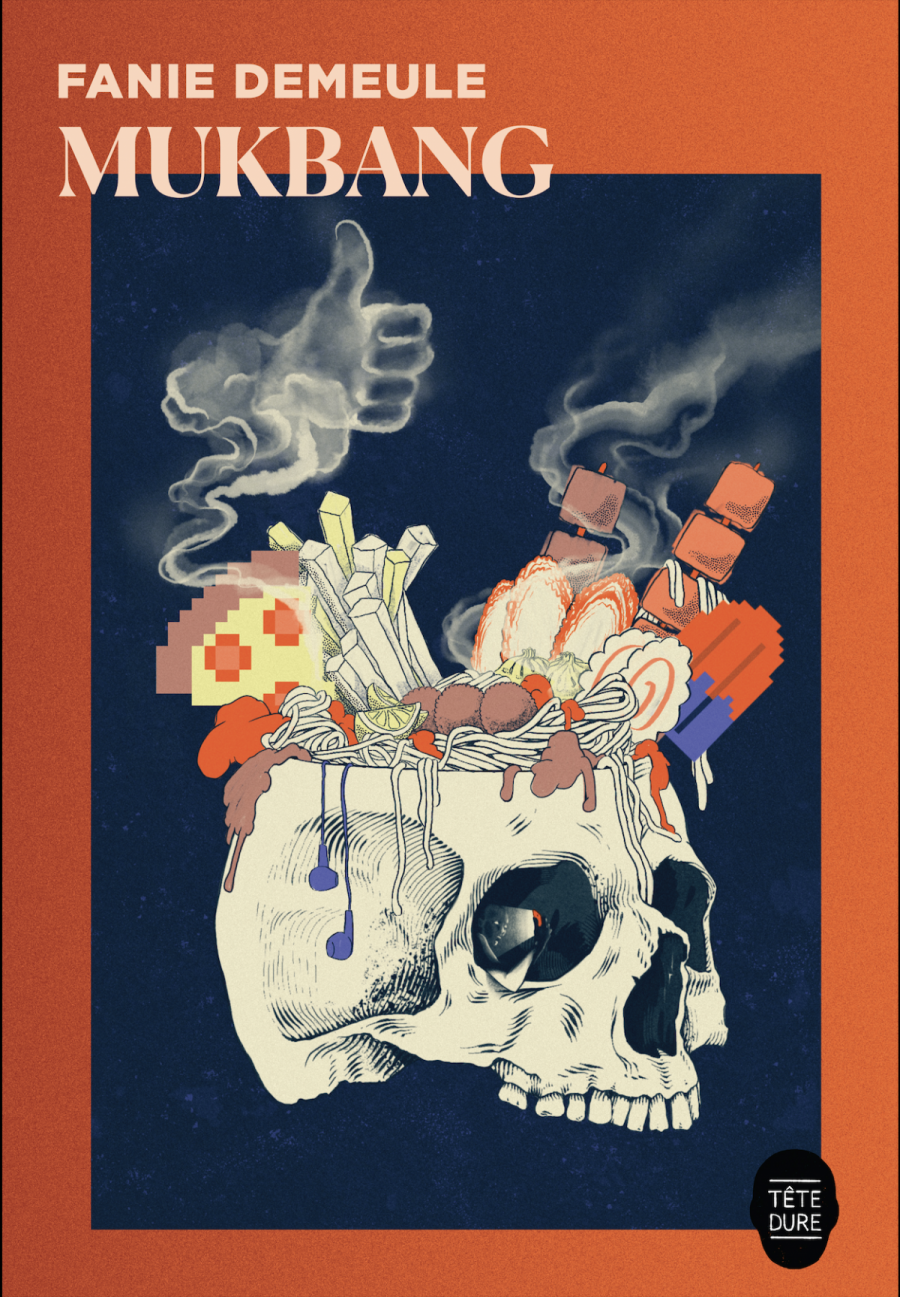Chews for views
Fanie Demeule’s Mukbang exemplifies the detrimental outcomes of digital personas
Disclaimer: This article mentions themes of binge eating.
There couldn’t be a greater contrast between technology and a physical book—but when these two worlds collide, you get a unique and compelling read.
Fanie Demeule’s novel Mukbang uses QR codes to enrich her storytelling, filled with references that resonate deeply with those who have grown up online.
Demeule is a Quebec author who writes in French, with some books translated into English. Her work often tackles contemporary issues such as body image, mental health, social pressures, intimacy and the impact of being online.
One of her latest novels, Mukbang, was published in 2021 and translated in 2022. Demeule introduces us to Kim Delorme, a young girl who is completely captivated by her computer. Delorme spends her childhood glued to a screen, slowly pulling away from the real world. It's a story that hits close to home for many of us who grew up in the digital age, feeling that same sense of isolation as we lost ourselves in the realm of online videos and games.
The term mukbang originates from the Korean word ‘meokbang,’ with ‘meokda’ translating to eat and ‘bangsong’ meaning broadcast. Mukbangs are also widely associated with live-streamed videos where a host consumes large quantities of food while interacting with an online audience. This trend is particularly popular on YouTube and has been adopted by content creators around the world.
The QR codes are an added layer to the experience, pulling you back to random YouTube videos from 10 or 15 years ago—oddly specific, niche content from that era of the internet;making the story feel even more immersive.
Our main character eventually decides to start her own YouTube channel, beginning with vegan and health content. But when she notices the rising popularity of mukbang videos, she shifts her focus. What began as a hobby quickly spirals into something dangerous, and an online feud pushes her to the edge.
At times treading the line with the unhealthy, some content creators have been shown to gain excessive weight due to the recurring binge eating. Mukbang is all the more relevant today with the recent case of Nikocado Avocado, a well-known figure in the mukbang industry. Avocado uploaded a video on Sept. 6 showing that he had secretly lost 113kg off-screen. His story closely resembles that of Delorme, but with a different ending than the journey Demeule carries us through.
Demeule’s writing is straightforward yet gripping, moving quickly enough to make Mukbang a book you can devour in one sitting. Despite being only 179 pages long, it’s packed with complexity. Every page is equally compelling and vivid with some unsettling content.
Along the way, we meet side characters who are just as multifaceted as the main character, and we witness each of their inner struggles. They also serve as a reminder of our own media consumption and limitations—often forgotten as we roam the web.
Demeule mixes surrealism with realism in a way that poses the question of what's real and what’s not. As you read, the line between the fantastical and the everyday starts to blur, leaving you wondering if the events could actually happen. Her storytelling keeps you on your toes, pushing you to rethink your perceptions and explore where reality ends and imagination begins.
Reading a story set in Montreal is always a real treat, and it's wonderful to dive into the works of local authors who deserve more recognition. Demeule is not just accessible and engaging—she's a natural storyteller with the ability to make you crave both the food she describes and the story she tells.
This article originally appeared in Volume 45, Issue 2, published September 17, 2024.







